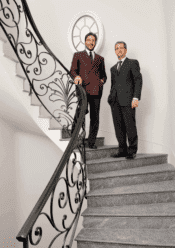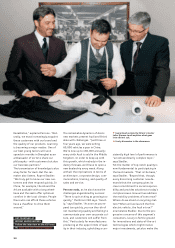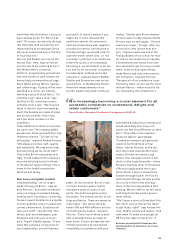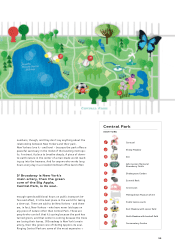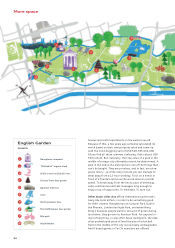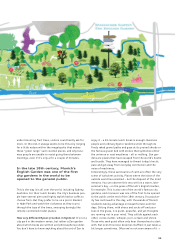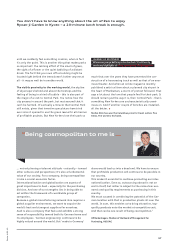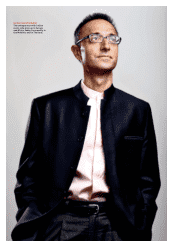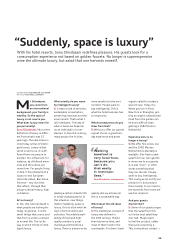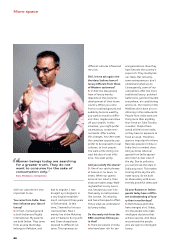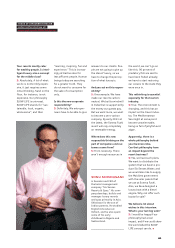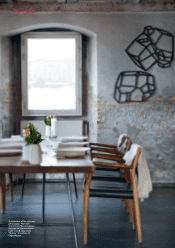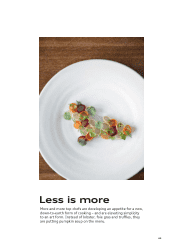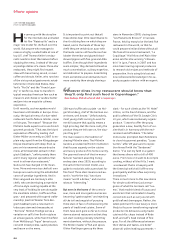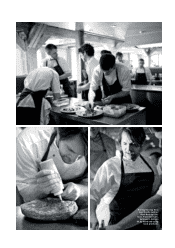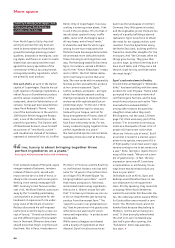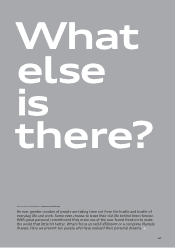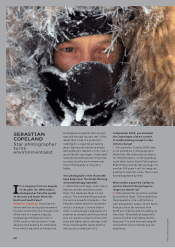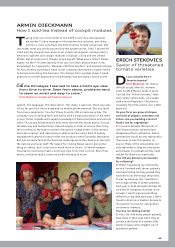Audi 2009 Annual Report Download - page 62
Download and view the complete annual report
Please find page 62 of the 2009 Audi annual report below. You can navigate through the pages in the report by either clicking on the pages listed below, or by using the keyword search tool below to find specific information within the annual report.
59
r. Shivdasani,
you come from
an international
background, your family is
wealthy. So the topic of
luxury is not new to you.
What does luxury mean for
you personally?
Sonu Shivdasani: My current
definition of luxury is differ-
ent from what it was 15
years ago. The idea I have in
mind today is that of intelli-
gent luxury. Luxury is that
which is rare to us. It is dif-
ferent from one person to
another. It is influenced, for
instance, by childhood mem-
ories and the culture you
come from. For people living
in Asia, it has always been a
luxury to visit European
cities like Lisbon, Barcelona,
Florence – very old cities
that reflect, through their
unique cultural history, high
civilization.
Art as luxury?
S: Yes, this cultural depth is
what people are looking for
today. In general, it is the
small things that count, and
that form a certain contrast
to normal life. This is the
way in which I think of intel-
ligent luxury.
What exactly do you mean
by intelligent luxury?
S: I mean a kind of sensitive,
sustainable consumption,
preserving resources and the
environment. That’s what I
call intelligent. The idea of
what is luxurious depends
on an individual’s circum-
stances. In the 21st century,
many people live in cities,
leading a rather stressful life
in a fast-changing world. In
this situation, new things
matter: Suddenly, space is
luxury. Or let’s stick with the
topic of environment and
pollution: The reliable avail-
ability of fresh and high-
quality produce is a real
challenge and therefore a
luxury. There is a desire to be
more sensitive to the envi-
ronment. People want to
buy intelligently. This is
what the hotel business has
to respond to.
What consequences do you
draw from that?
S: We try to offer our guests
a great choice, a great holi-
day experience and great
quality. But we achieve all
this in a sustainable way.
What about the old ideas
of luxury?
S: The traditional concept of
luxury was defined in
the 19th century. People
then had more time, and
most of them lived in the
countryside. For them, fresh
organic salad for instance
was not rare. Today it is.
When you live in Paris,
New York or Shanghai, get-
ting an organic salad picked
fresh from the garden can
be more difficult than
getting a 1982 Mouton
Rothschild.
Expensive wine is no
longer a luxury?
S: We offer fine wines, too
and the 1982 Mouton
Rothschild incidentally is
available. But fresh rocket
salad from our own garden
is more rare to our guests.
It is also “true”– in other
words something that
they can cherish. People
want to buy intelligently.
This is why we do not fly our
products in, but produce
them locally. In our resorts,
the branches from trees are
used as compost.
And your guests
cherish that?
S: Some of our guests argue
that the salad from this
soil is the best salad they
ever had. People want
to feel the product, rather
than just consuming it.
This is why direct contact
“Suddenly, space is luxury”
With his hotel resorts, Sonu Shivdasani redefines pleasure. His guests look for a
consumption experience not based on golden faucets. No longer is superexpensive
wine the ultimate luxury, but salad that one harvests oneself.
“
Walking
barefoot is
very luxurious,
because you
can’t do
that easily
in metropo-
lises.”
Sonu Shivdasani, entrepreneur
INTERVIEW/ALEXANDER GUTZMER
PHOTOS/MICHAEL CLEMENT
M


